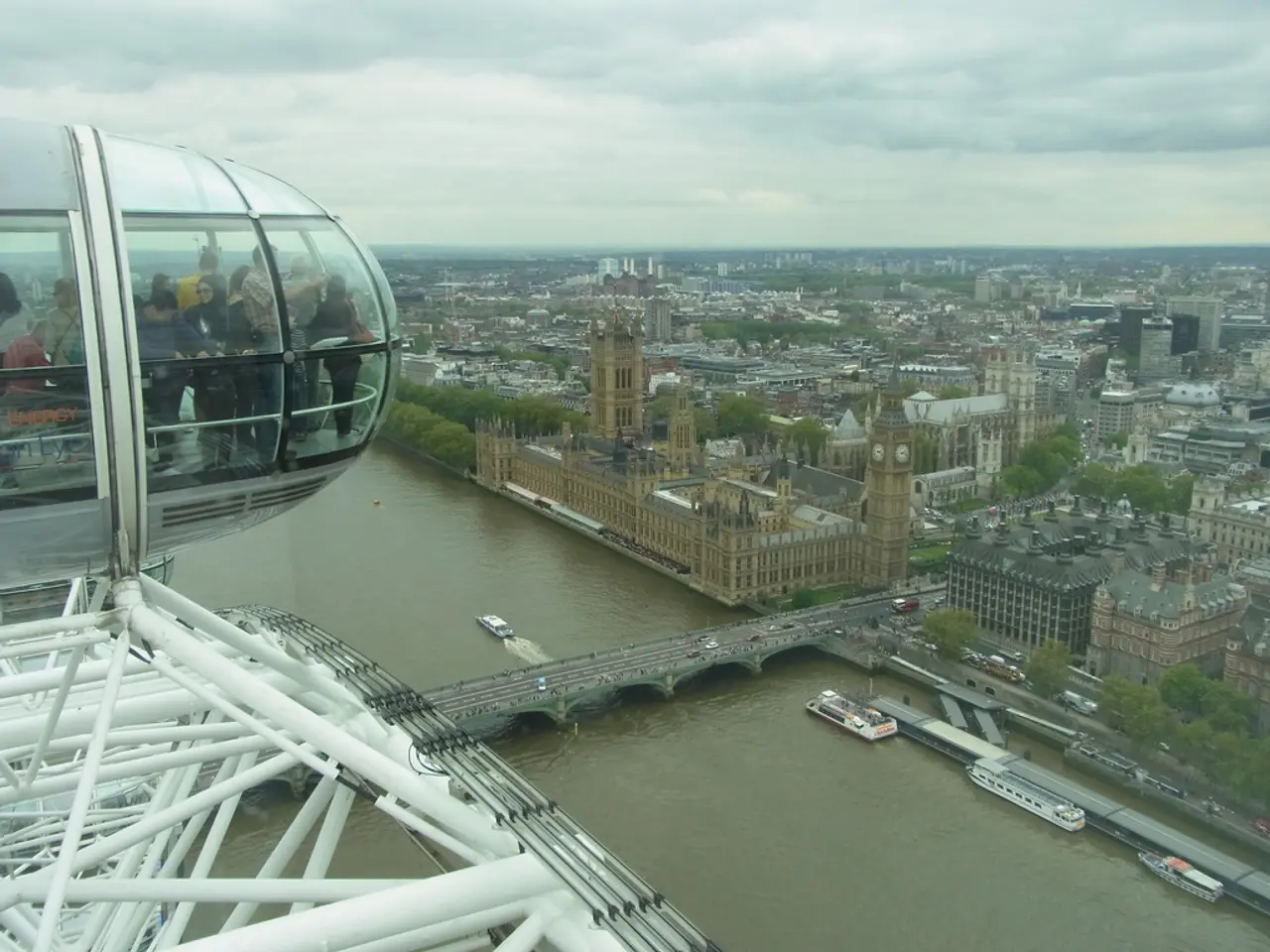Upcoming property tax increases fail to instill fear within London's property sector
In the heart of London, amidst uncertainty surrounding the government's Autumn Budget, Century Capital, a UK property lender, hosted a breakfast briefing at The Arts Club in Mayfair on September 26. The event, attended by influential professionals in the property sector, including Colin Horton, Andy Morrison, and Nigel Lewis, was not focused solely on the potential negative aspects of the property market, but rather on looking towards a positive future.
Paul Munford, CEO and founder of Century Capital, expressed confidence that the expected easing of interest rates will drive confidence and transaction levels across the property market. Economists are projecting that interest rates will see one or two reductions before the end of the year, and experts agreed that interest rates will likely continue to drop from their current peak of 5%. Goldman Sachs is forecasting interest rates to drop down to 3.4% by 2025.
However, the discussion also centred around Labour's proposed tax measures and their potential impact on the property market. Industry experts predict that Labour's taxes will have mixed and sometimes unintended effects on the UK property market.
A key anticipated impact is from Labour’s proposal to increase VAT on private school fees, which is leading to a surge in sales of high-value family homes in affluent areas near prestigious private schools. Families facing higher school fees appear to be relocating, causing increased movement in upscale property markets.
There is also discussion of Labour advocating a "mansion tax" on properties valued at £2 million or more. This tax aims to target wealthier homeowners to raise significant revenue but is expected to affect the high-end property sector most directly.
The government’s broader tax rises—including increased capital gains tax rates—are part of attempts to raise revenue from wealthier individuals, which could influence property investment and sales dynamics. However, some experts and politicians warn that taxing wealth or property heavily might lead to capital flight or reduced wealth creation.
Despite these pressures, Labour has been making legislative progress with measures intended to improve housing standards and encourage new building, such as the Warm Homes Plan and Social and Affordable Homes Programme, which could somewhat moderate negative effects on the housing market.
In summary, industry experts see Labour's taxes as likely to stimulate increased activity in upscale property sales due to indirect tax effects, put upward pressure on taxation of high-value homes, influence broader market conditions, and potentially lead to reduced investment. However, the net effects remain uncertain given the government's housing initiatives underway.
James Tumbridge, a barrister and partner at Keystone Law, stated that foreign investors are not rejecting the UK, especially London, as a major investment destination, despite the upcoming Autumn Budget. The breakfast discussion also highlighted the continued interest of foreign investors in the UK property market.
The event concluded with Paul Munford thanking the panellists and attendees for making the Century Capital Breakfast Briefing a valuable event. In a related news report, over £16,000 was raised to tackle children's bed poverty. A council also urged landlords to join the Healthy Homes Scheme.
- James Tumbridge, a barrister and partner at Keystone Law, asserted that foreign investors continue to view London as a significant investment destination for real-estate, regardless of the upcoming Autumn Budget.
- The ongoing interest in the UK property market among foreign investors suggests that they are still engaged in investing their financial resources in business, specifically real-estate.




